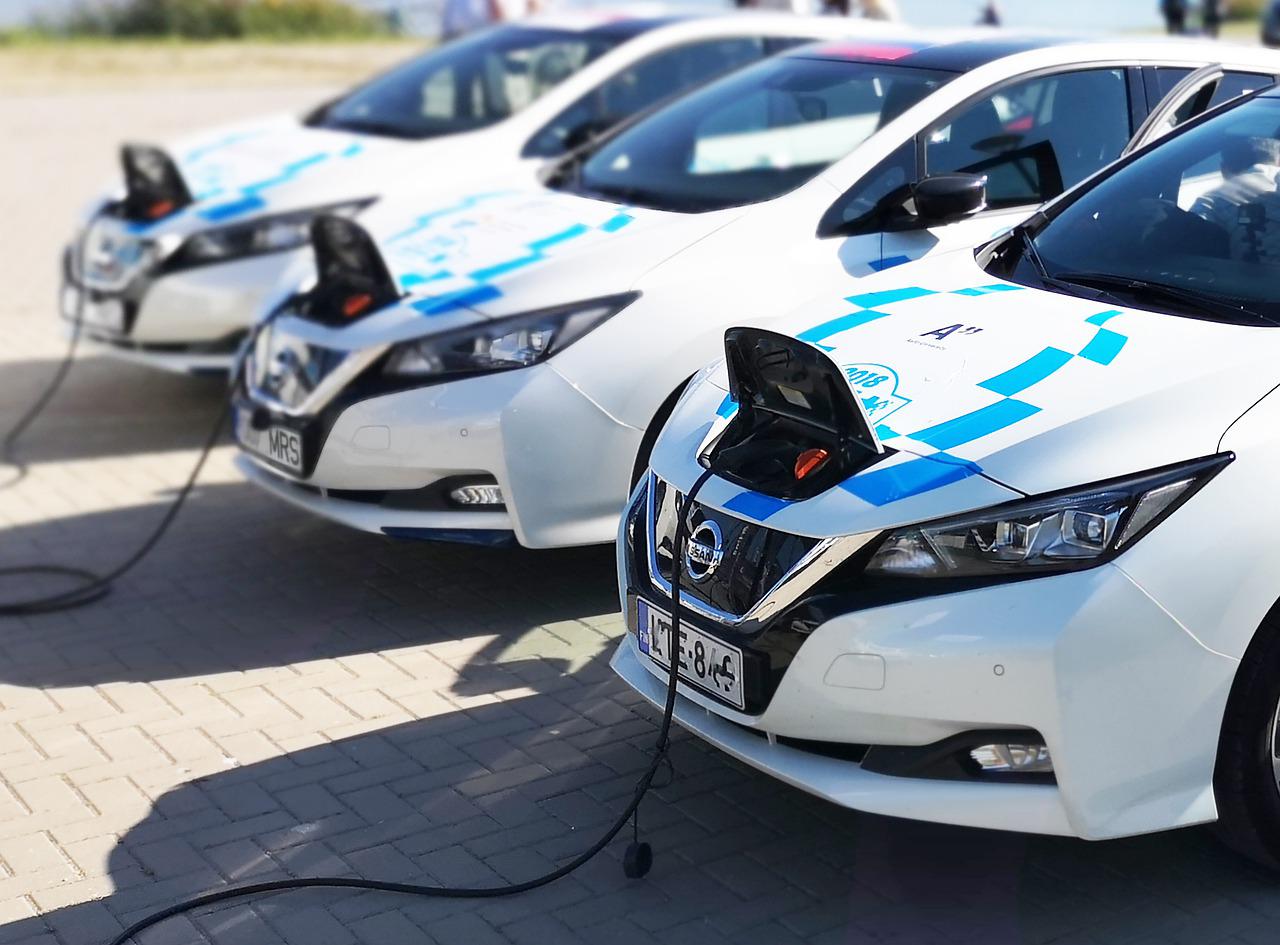As a new or intending electric vehicle user, it can seem a bit daunting to make sense of all the words and terminologies. Admittedly, you do not need to be a new electric vehicle used to get confused about EV terminologies; seasoned electric vehicle champions have confessed to us in the past that a lot of the terms people use go over their heads now and then. If you have questions concerning electric vehicles, especially questions regarding electric vehicle chargers, batteries, and charging speed, then you’ve come to the right place. We aim to answer as many of the frequently asked questions as possible in the most exact words with this piece.
Ideally, at the end of this article, you’ll be able to answer most of the questions you had before, and more importantly, we hope to help you answer some of the questions you never realized you had until now. If this introduction sounds welcoming to you, please consider sitting back, relaxing, and letting this team take you on a fantastic journey through EV charging.
Introduction to Electric Vehicle Batteries
Electric vehicle batteries are the secret behind the existence of electric vehicles. Without this important innovation, we would have no electric cars. In 2022, there are two main types of electric vehicle batteries, and they include;
Lithium-ion batteries & Nickel-metal hydride. You can find Lithium-ion batteries in many fully electric vehicles such as Jaguar and Tesla. If you drive a lot of Toyota hybrids, you can expect a Nickel-metal hydride electric vehicle battery system.
There’s more to lithium car batteries than meets the eye; for example, when we talk about a battery car, we’re referring to a team of tiny individual battery cells that together makes up a battery unit. Lithium car battery units are engineered for optimum performance and built in a way that they maintain ideal internal temperature whether you’re driving in 38C heat or -38C ice.
Electric vehicle batteries are nothing short of a maze of engineering genius, and there’s no way to justifiably do justice to electric vehicle batteries in a single article. Still, over the next few minutes, we’ll do our best to break down different aspects of the lithium battery pack, their engineering, and their operations.
What is kWh?
Kilowatt-Hour is a terminology that many of us have encountered in the past, and unless you have some engineering or mechanical background, most people do not know or need to know what it means. In simple terms, a kWh equals the amount of energy it takes to run a 1,000-watt appliance for one hour; that means if you have a 1,000-watt battery, it will take one hour to use one kilowatt-hour of energy.
Practically, you won’t find any 1kWh (1,000 watts) lithium car battery; it’s just too little for any reasonable usage. Let’s take a high-performance vehicle with 100kWh; this means that such a car can deliver a maximum of 100 kilowatts of energy for one hour.
The reality of life means that you’ll use considerably less than 100 kilowatts worth of energy during an hour of driving, and this means that your 100 kWh battery will last more than one hour on a full charge. If you consume 10kWh during one hour of driving, a 100kWh battery can take you 10 hours at that consumption rate – please note that these figures are for simplicity.
The Mechanics behind EV Battery Charging
Have you ever wondered how energy transfers from a power outlet to your electric car? If your answer is yes to the question, then you’re not alone; a considerable amount of us ponder this question.
When it comes to electric vehicle battery capacity, you most likely do not need a 100kWh battery if your needs aren’t excessive. In the US, the average EV owner drives their vehicle for an average of 48 kilometres daily, and the average Australian can expect to churn out similar numbers daily; this means that a 35kWh can serve most people’s reasonable needs comfortably.
If you reach out to EV Powerhouse, you’ll be able to learn more about the different electric vehicle charger levels, which charger type is ideal for you and even a quick explanation of how power goes from your outlet to your vehicle.
Effects of Weather on EV Battery Performance
Weather is a crucial variable in the operation of most automobiles, and electric vehicles are no exception. Some people consider electric vehicle performance to be more dependent on weather than regular petrol or diesel-powered vehicles. Is this true? Let’s find out.
If you’ve ever wondered whether cold temperature reduces EV performance, you have no cause to ponder any longer; the answer is yes. Several studies have shown a 10 – 12% power reduction when the temperature drops to -6C. Another study by Idaho National Labs suggests that cold weather can cause charging time to triple in some cases.
On the other hand, higher temperatures can cause your EV battery unit to degrade and wear out faster; this is because excessively high temperatures influence the efficiency and frequency of chemical reactions taking place within the battery, and a lot of the time, faster responses can cause quicker degradation at high temperatures.
Electric vehicle manufacturers understand the realities of operating in extreme weather, and they’ve built their vehicles in the best way to manage temperature effects; with new iterations of electric vehicles, EV manufacturers are unveiling new tech and innovations that’ll help us all get more out of our electric cars no matter what the thermometer says.
Charging Hardware
All-electric vehicle chargers are not equal; some will “trickle charge” a 35kWh battery for eight hours. Others will do a similar task in half the time, some within an hour, and a particular grade of chargers can fill up a small electric car battery in 10 minutes.
Level 1 Car Charger
AC trickle charging offers about 2.0kW of power through a normal 10-amp power socket. This means it can take from four to 48 hours to charge your car, depending on the battery size; such chargers are better for people with plug-in hybrid vehicles or those of us with relatively short commutes.
Level 2 Car Charger
This charger class is a step up from a level 1 charger; they’re more dynamic, and their electrical socket output is 208-240 V (20-100amps). With such a charger, you can fill most cars in 2 to 8 hours, and it’s the charger of choice for most EV owners.
Level 3/ DC Fast Charger
Level 3 chargers are the fastest chargers available to the general public, and you can expect a level 3 DC fast charger to charge at a rate of 5 to 32 kilometres per minute. This charger uses Direct Current instead of Alternating Current as others do.
What are single phase and 3 phase?
Have you ever wondered why single-phase takes longer than 3 phase charging when you’re charging your electric vehicle? Many have reached out to us with questions about why it takes longer to go from 80-100% during EV charging than for it to go from 60-80%.
It might seem like a trivial issue to a lot of us, but there’s a subset of EV owners that are itching to know why such a phenomenon may occur at any time during the charging process of their prized electric vehicle. If you’ve ever pondered this question, we hope our answer below isn’t too vague or unsatisfying.
When it comes to battery charging, manufacturers realized years ago that consumers enjoy and prefer having physical feedback on their charging process; we want to know how long we’ve charged and how much longer we have to go.
During the charging process, it’s important to keep in mind that your EV isn’t made up of one battery but a unit of batteries working together to power different aspects of your EV. For some vehicles, the 80% – 90% range is used to power parts of the battery that may be sensitive and power-intensive.
- Single Phase is widely used in homes. Single-phase voltage in Australia starts at 230 volts and this voltage connection fluctuates constantly, meaning constant single-phase power is not supplied to the load.
- 3 Phase power, on the other hand, has a constant supply of power to the load. This means, 3 phase power never drops to Zero. It got 3 separate electric services and each of these services can reach maximum voltage. Australia 3 phase voltage between each of the 3 wires will be close to 400 volts.
Speed up Charging through the proper routine
Do you believe that you can improve charging performance by simply following the proper charging routine with the appropriate charging routine? You may be surprised to learn how employing an appropriate routine of charging for your vehicle can help you get more out of it today and long into the future; here are two essential things to keep in mind for performance-based charging they include;
– Charging with the right equipment
EV Powerhouse is here to help you get used to charging your vehicle with premium electric vehicle charging hardware, and using the correct charger is an essential aspect of your charging process that you cannot afford to overlook or get wrong. With that in mind, when you think of EV charging performance optimization, think of EV Powerhouse.
– Charge with an intention
Charging with an intention is charging with a goal in mind, and many people who get the best performance out of their electric vehicles for extended periods understand that you need to charge smartly. You do not need to charge to the maximum every single time; you seldom need to charge to the max; when you charge based on estimated usage, you can get better performance from your EV for extended periods well into the future.
EV Powerhouse Australia: Here for You
At our service, customer success and satisfaction are more important to us than most other things, and that’s one of the reasons you would not find another electric vehicle charger retail company that’s more interested in your growth than our company.
Are you looking for an electric vehicle retail service that’ll help you throughout your electric vehicle charging journey? If your answer is yes, then welcome home because you do not need to look any further than Australia’s premium electric vehicle charging solutions retailer.
There’s a lot to unpack when it comes to the topic of electric vehicle chargers and charging speed, and there’s only so much we can cover in one article. Still, we’re always available to answer your questions and guide your electric vehicle charger shopping choices.
Are you ready to work with the electric vehicle charger retailer for you? All you need to do is reach out to the fantastic team at EV Powerhouse, and all your EV charger worries will be a thing of the past.

